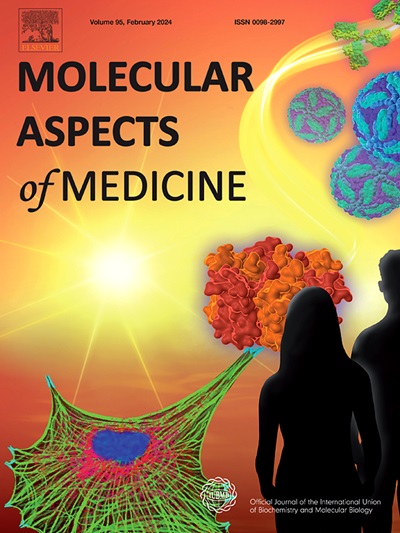光遗传学工具及其在终末期遗传性视网膜疾病治疗干预中的应用
IF 10.3
2区 医学
Q1 BIOCHEMISTRY & MOLECULAR BIOLOGY
引用次数: 0
摘要
视网膜退行性疾病带来了重大的治疗挑战;然而,光遗传视力恢复提供了一种独立于突变和疾病进展的有前途的策略。由光敏膜蛋白组成的光遗传学工具可以在视网膜细胞中异位表达,有效地将其转化为人工光感受器。本文综述了光遗传学工具在恢复变性视网膜光敏性方面的发展和应用。深入了解视网膜细胞形态、病理重塑和功能丧失对于确定最佳细胞靶点以最大限度地恢复视网膜信号和实现具有挑战性的视觉结果至关重要。在特定的视网膜细胞类型中精确地传递和表达定制的光遗传学工具对于临床成功至关重要。虽然最近的努力集中在实现环境光水平下的视力恢复,但其他因素,如动态光适应,视网膜内信号处理和提高视觉分辨率已成为关键因素。与人工智能相结合的光遗传刺激护目镜等技术有可能改善接受治疗的患者的视觉质量。本文还总结了临床前基础,并重点介绍了首次临床成功,强调光基因视力恢复正在成为一种有效的治疗方法,为盲人恢复有意义的视力。本文章由计算机程序翻译,如有差异,请以英文原文为准。
Optogenetic tools and their applications for therapeutic intervention in end-stage inherited retinal diseases
Retinal degenerative diseases pose significant therapeutic challenges; however, optogenetic vision restoration offers a promising strategy that is independent of mutations and disease progression. Optogenetic tools consisting of photosensitive membrane proteins can be ectopically expressed in retinal cells, effectively converting them into artificial photoreceptors. This review outlines the development and application of optogenetic tools to restore light sensitivity in degenerated retinas. A thorough understanding of retinal cell morphology, pathological remodeling, and functional loss is critical to identifying optimal cellular targets to maximize retinal signal restoration and achieve challenging visual outcomes. Precise delivery and expression of tailored optogenetic tools in specific retinal cell types is critical for clinical success. While recent efforts have focused on achieving vision restoration at ambient light levels, other considerations such as dynamic light adaptation, inner retinal signal processing, and improved visual resolution have emerged as critical factors. Technologies such as optogenetic stimulation goggles integrated with artificial intelligence have the potential to improve visual quality in treated patients. This review also summarizes the preclinical fundamentals and highlights the first clinical successes, underscoring that optogenetic vision restoration is on its way to becoming an effective therapy for restoring meaningful vision to people affected by blindness.
求助全文
通过发布文献求助,成功后即可免费获取论文全文。
去求助
来源期刊

Molecular Aspects of Medicine
医学-生化与分子生物学
CiteScore
18.20
自引率
0.00%
发文量
85
审稿时长
55 days
期刊介绍:
Molecular Aspects of Medicine is a review journal that serves as an official publication of the International Union of Biochemistry and Molecular Biology. It caters to physicians and biomedical scientists and aims to bridge the gap between these two fields. The journal encourages practicing clinical scientists to contribute by providing extended reviews on the molecular aspects of a specific medical field. These articles are written in a way that appeals to both doctors who may struggle with basic science and basic scientists who may have limited awareness of clinical practice issues. The journal covers a wide range of medical topics to showcase the molecular insights gained from basic science and highlight the challenging problems that medicine presents to the scientific community.
 求助内容:
求助内容: 应助结果提醒方式:
应助结果提醒方式:


